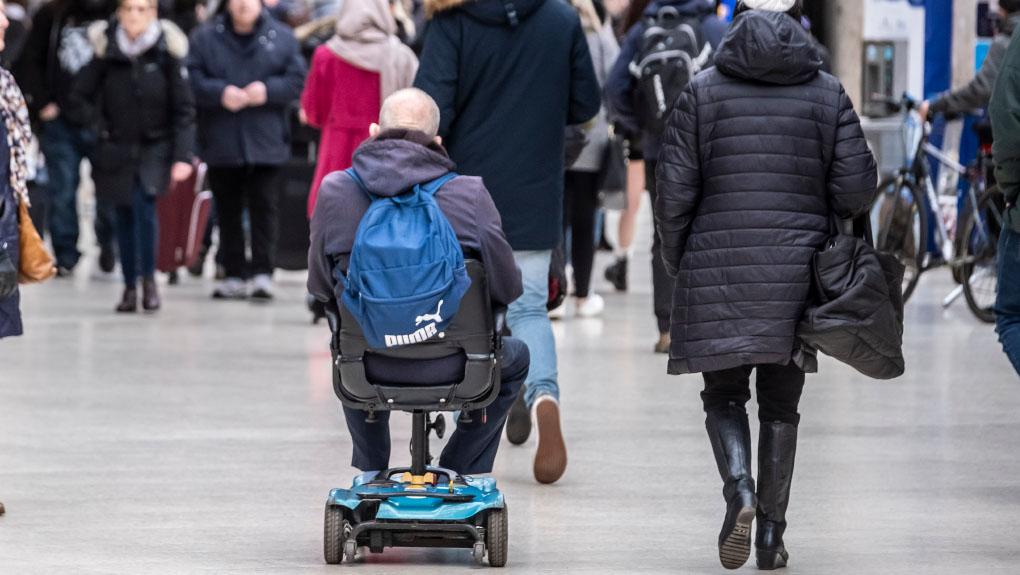
A cross-section of disabled people took part in research commissioned by ORR and surveys which collated evidence about their experiences of complaints handling by train operators.
Many were positive about how to raise a complaint or redress claim and secure the outcome they were hoping for; however, this was also countered by some reports of very poor experiences.
The key findings from the report show:
- 86% of disabled passengers who took part in the research were aware of their right to complain when they have received an unsatisfactory service. Of these 62% were ‘fully aware’, however the awareness of redress was lower, at 71%, with only 39% being ‘fully aware’
- Operators’ complaints processes are broadly accessible to most disabled passengers but 46% reported that they experienced some barriers and 8% found the complaints process to be inaccessible.
- Disabled passengers would be more likely to complain if they felt it was a worthwhile use of their time and energy and that it would lead to change. Our report showed that in the past two years, 36% of disabled passengers didn’t complain when they believed they had cause to and 45% didn’t seek redress on any occasion when they could have.
The regulator will be engaging with relevant operators to drive improvement after identifying some non-compliance with specific requirements in the Complaints Code of Practice and the Accessible Travel Policy Guidance that are designed to secure passenger awareness and ensure that complaints processes are accessible to all disabled people.
All operators have also been asked to specifically look at complaints from disabled passengers and demonstrate what they have done to rectify the issues. These should be included in their respective annual reports on how insights from complaints have informed improvements.
Stephanie Tobyn, ORR director of strategy, policy and reform, said:
Notes to Editors
- Disabled passengers’ experiences of complaints handling by train operators – report
- Rail passengers with access needs and disabilities: experiences of complaints – commissioned report
- The commissioned report contains findings on the perceptions and experiences of disabled people in relation to the Rail Ombudsman process. ORR will be publishing a separate piece of research in relation to these Rail Ombudsman findings later in 2024.
- ORR will be writing to 10 non-compliant operators regarding the promotion of complaints and redress information on websites and the ease of finding complaint information on websites.
- ORR introduced an updated regulatory framework for complaints handling on 1 April 2023. The changes were designed to embed a culture within operators where insights from complaints are used to drive continuous improvement; and to incentivise quality and timeliness in complaints handling, which are the key drivers of passenger satisfaction with the complaints handling process.
- All operators are required, by their operating licences, to establish and comply with a Complaints Handling Procedure. The mandatory core minimum requirements and good practice principles that must be addressed by operators’ Complaints Handling Procedures are set out in a Complaints Code of Practice.
- In this report ‘redress’ refers to redress for booked assistance failures. ORR’s ATP Guidance requires operators to provide and promote the availability of redress where disabled passengers do not receive the assistance they have booked. The form of redress is determined by the operator on a case-by-case basis and may for example be an apology, financial compensation, or other award with a monetary value.
- The Office of Rail and Road is the independent economic and safety regulator for Britain’s railways, and regulator of performance and efficiency for England’s Strategic Road Network.
- The Department for Transport, and Scope, recently published their Right to Ride information guide for disabled passengers which is designed to raise awareness of rights when things go wrong and how to complain.

